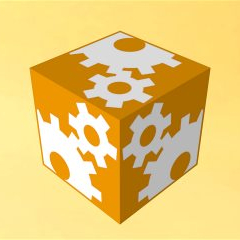
To begin this series on board and card game mechanics, here is a brief overview of what they are, and why knowing more about them can be useful. Throughout this article I’ll refer to board and card game mechanics as board game mechanics, tabletop game mechanics, game mechanics, or even just mechanics to simplify the usage.

What are Board Game Mechanics?
Beginning with this question is important for our discussion, as there are many ways that game mechanics can be thought of and defined. For the purposes of these articles, we will define mechanics as the mechanisms or rules that direct how the game works, understanding that a board or card games’ individual combination of mechanics is what sets it apart from other games and makes it unique.
By this definition, the terms rules and mechanics can sometimes be used synonymously; however, it is important to remember that even games that utilize a similar mechanic usually use specific instructions and game components to define the mechanic in a unique way that meaningfully sets each one apart from other similar games.
In the articles that follow we will discuss general categories of game mechanics with the understanding that most games will define, interpret, combine, and employ these general categories of mechanics in various ways to create uniquely enjoyable games.
Why are Board Game Mechanics Important?
A game’s mechanics are usually set forth and outlined in an instruction sheet or booklet, and in most cases should be clear and comprehensive so that players rarely, if ever, encounter uncertainties as to what is permissible or not.
Artwork and graphic design are often a wonderful component of board and card games, but are usually insufficient to make a game enjoyable to play. Have you ever played a game where you thought something like this? I would almost be willing to frame this box and put it on my wall—the art is that great—but it’s really not a game I would ever want to play again. If you have ever thought this about a game, that game was probably suffering from insufficient or unbalanced mechanics.
A board or card game with well-designed mechanics works together as one unit, makes logical and intuitive sense when played, and is enjoyable to play. Strong, well-designed mechanics are ultimately the biggest reason why any game gets brought to the table again and again and again. Board and card games with great mechanics are fun to play!
Why Learn About Board Game Mechanics?
For both experienced and first-time board and card game designers, understanding the core components of mechanics is key. Game designers need a constantly improving understanding of mechanics to develop unique and balanced games that are engaging and play well. Learning about mechanics used in existing games and thinking about the various ways they can be restructured and translated into new games can help inspire, enlighten, and guide designers as they create new and innovative tabletop games.
For board and card game players, a deep understanding of tabletop game mechanics can help improve their enjoyment of existing games, facilitate a better understanding of their games’ rules, and guide their future exploration of games containing favorite old or new mechanics.
Driving a car can be a much more interesting experience when we have an understanding of how vehicle mechanics work, and repairs are feasible even when something goes wrong. The same applies to board and card games. As I have started to become more cognizant of the unique combinations of mechanics that add life and energy to games, those games have become more fun to play, and I have started to see new ways that games can be combined, developed, and designed to provide new and enjoyable experiences.
Hopefully for all of us, learning about board and card game mechanics becomes an engaging and ongoing journey of discovery that opens new doors to thinking about, designing, and enjoying games. For me, the ultimate goal of board and card games is to bring families closer together and strengthen friendships so that we all can find more true joy and learn and grow together on our journey through life.
What experiences have you had with board and card games that have been a blessing to you? What experiences have you enjoyed while playing board and card games with family and friends? Please comment below with your thoughts!
A board or card game with well-designed mechanics works together as a single unit, makes logical and intuitive sense when played, and is enjoyable to play. Strong, well-designed mechanics are ultimately the biggest reason why any game gets brought to the table again and again and again. Board and card games with great mechanics are…

Tabletop Game Mechanics to Explore
- Action Drafting Mechanic
- Alliances Mechanic
- Auctioning Mechanic (Part 1/2)
- Auctioning Mechanic (Part 2/2)
- Bluffing Mechanic
- Board Game Mechanics: An Overview
- Component Drafting Mechanic
- Cooperation Mechanic
- Dice Rolling Mechanic
- Direct Conflict Mechanic
- Elimination Mechanic
- Engine Building Mechanic
- Finance Mechanic
- Irregular Turn Order Mechanic
- Memory Mechanic
- Negotiation Mechanic
- Random Selection
- Social Deduction Mechanic
- Tile Placement Mechanic
- Unique Abilities Mechanic
- Worker Placement Mechanic
